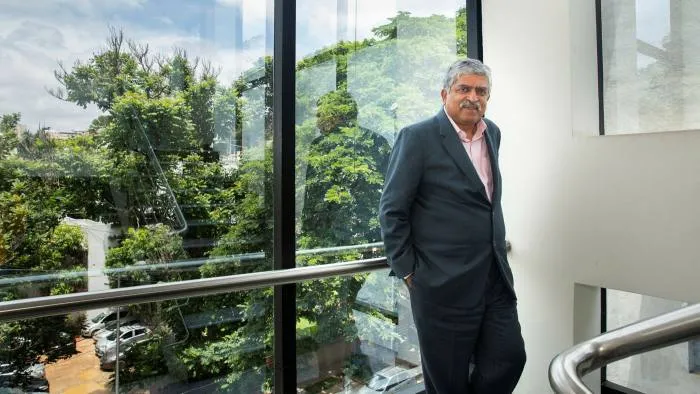
Nandan Nilekani has called on India to embrace cryptocurrencies as an asset class as authorities round the world grapple with how to accommodate the technology.
The chair of Infosys, the information technology and consulting company, believes cryptocurrencies are too volatile and energy intensive to use as a means of payment and views India’s homegrown Unified Payments Interface digital payments infrastructure as more effective. But he said crypto should be encouraged as an asset to be bought and sold, like a commodity.
“Just like you have some of your assets in gold or real estate, you can have some of your assets in crypto,” he told the Financial Times in an interview. “I think there’s a role for crypto as a stored value but certainly not in a transactional sense.”
Nilekani said permitting individuals and businesses to tap the $1.5tn market would allow “the crypto guys to put their wealth into India’s economy”.
The tech executive has long worked with Indian authorities to help craft digital policies, including the Aadhaar biometric identity programme. He also chaired a central bank committee on digital payments in 2019.
India is a potentially big market for crypto but the country’s official stance is unclear, with the spectre of an outright ban looming despite surging volumes among local traders.
A ban would make India one of the world’s most draconian jurisdictions when it comes to digital currencies, as authorities round the world consider how to regulate crypto.
India’s Supreme Court last year overturned a 2018 central bank directive clamping down on crypto. But the market continues to operate in a grey area, with some banks recently threatening to take action against crypto traders.
The government said this year it would introduce legislation that was widely expected to ban private digital currencies in favour of an official, central-bank run coin. Officials have since made more conciliatory-sounding statements.
Infosys has enthusiastically adopted the blockchain technology underpinning cryptocurrencies as it looks to offer a growing range of digital tools to its multinational clients.
But India’s IT industry was hit hard by the country’s ferocious second wave of coronavirus, with companies facing widespread infection among employees and regulators fretting about possible disruption to back-office operations. Nilekani argued the business impact was limited and cases were now falling.
Nilekani argued that Infosys’s experience and scale — the company has about 250,000 employees — meant it was well placed to thrive as companies revamp their internal systems to adjust to a post-pandemic routine of remote or flexible working.
This includes demand for shifting on to the cloud. Although Infosys does not usually reveal the identity of its clients, it has secured deals with companies including Daimler, the German carmaker, and US investment group Vanguard in the past year.
“I think, frankly, the opportunities today are better than ever before,” Nilekani said. “In the 40 years I’ve been in this industry, I’ve never seen so much change and acceleration happening.”




















